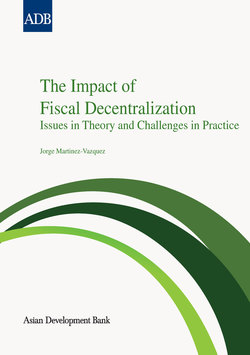Читать книгу The Impact of Fiscal Decentralization - Jorge Martinez-Vazquez - Страница 5
На сайте Литреса книга снята с продажи.
Introduction
ОглавлениеOver the last several decades, a revolution has been occurring in many countries around the globe, with the devolution of fiscal and political powers to subnational governments. This trend could be as influential for good governance and for improving the lives of ordinary citizens as major institutional transformations of the past century, such as decolonization in Africa and Asia or the transition from planned to market economies in the former Soviet Union and the People’s Republic of China (PRC).
Due to decentralization, many subnational governments have become key public sector actors. As such, their roles have grown, and expectations placed on them have increased. As countries continue to abandon centralized governance, it becomes increasingly important to know the impact of decentralization on a number of economic issues including growth and development; reducing poverty and achieving the Millennium Development Goals; advancing public services, such as education and health; and achieving greater macroeconomic stability with lower unemployment and inflation. The fundamental question is whether the ongoing decentralization trend is helping or hurting with these issues. The impact of devolution on a gamut of fundamental institutional issues, such as country unity versus separatism as well as the level of corruption, should also be scrutinized.
This policy note explores (i) why countries choose to decentralize their governance; (ii) what economic theory expects from decentralization; and (iii) what is known about the impact of decentralization on a relevant list of economic and political variables, as well as what conclusions are appropriate.
